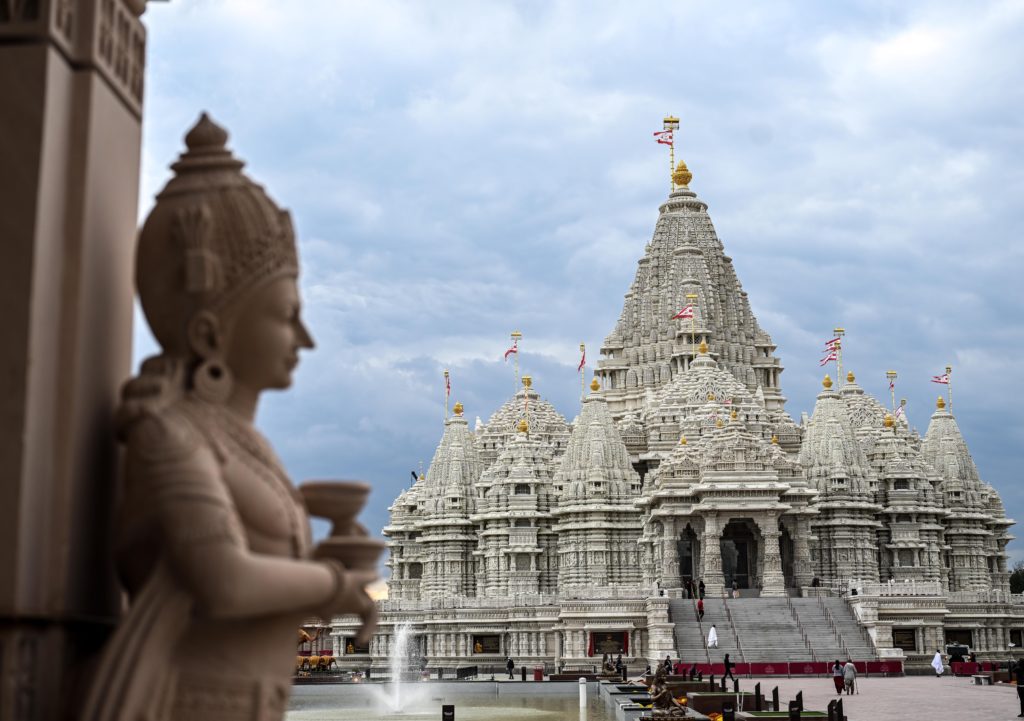Hinduism encompasses various beliefs and practices that guide the spiritual and ethical lives of its followers. Karma, the concept of cause and effect, determines the consequences of our actions in this life and future lives. Dharma emphasizes fulfilling one’s duty with righteousness. Reincarnation involves the cycle of birth, death, and rebirth based on past karmic actions. Moksha is the ultimate goal of liberation from this cycle, leading to spiritual enlightenment. Brahma is the universal spirit that connects all existence, while Atman is the individual soul connected to Brahma. The Vedas are ancient sacred texts providing foundational knowledge, while Puja is the ritual worship of deities. The caste system organizes society into different groups based on duties and responsibilities. Ahimsa promotes non-violence and compassion towards all living beings, fostering peace and harmony in the world.
1. Karma
Karma is one of the central beliefs in Hinduism. It is the concept of cause and effect, where our actions in this life determine our future lives. Hinduism teaches that every action we take, whether positive or negative, will have consequences that will affect us in this life or in future lives. This belief in karma influences how Hindus live their lives, as they strive to do good deeds and avoid harming others in order to accumulate positive karma.
2. Dharma
Dharma is another important belief in Hinduism. It refers to a person’s duty or righteous behavior based on their individual circumstances. Dharma encompasses all aspects of life, including moral, ethical, and religious duties. Hindus believe that by following their dharma, they are able to live a fulfilling and harmonious life. Dharma also emphasizes the importance of doing one’s duty without attachment to the results, as it is the act itself that is important.
3. Reincarnation
Reincarnation is the belief that the soul is eternal and undergoes a cycle of birth, death, and rebirth. Hindus believe that the soul is reborn into different bodies based on its karma from previous lives. This belief in reincarnation gives Hindus a sense of continuity and allows them to strive for spiritual growth and enlightenment in each lifetime. Reincarnation also reinforces the idea of karma, as it is through the law of karma that one’s actions in past lives determine their future lives.
4. Moksha
Moksha is the ultimate goal of Hinduism, which is liberation from the cycle of reincarnation and the attainment of spiritual enlightenment. Hindus believe that through self-realization and understanding of one’s true nature, a person can break free from the cycle of birth and death. Moksha is seen as a state of eternal bliss and union with the divine, where the individual soul merges with the universal soul. Achieving moksha is considered the highest goal in Hinduism.
5. Brahman
Brahman is the ultimate reality in Hinduism, the universal spirit that pervades all of existence. Hindus believe that all living beings are manifestations of Brahman, and that everything in the universe is interconnected. Brahman is seen as the source of all creation and the ultimate source of truth and knowledge. Through meditation and spiritual practice, Hindus seek to realize their oneness with Brahman and attain spiritual enlightenment.
6. Atman
Atman is the individual soul or self in Hinduism. Hindus believe that the Atman is eternal and unchanging, and that it is ultimately the same as Brahman. The goal of spiritual practice in Hinduism is to realize the true nature of the Atman and its connection to Brahman. This realization leads to self-awareness and liberation from the cycle of birth and death. Atman is considered the true essence of each individual, beyond the physical body and mind.
7. Vedas
The Vedas are the ancient sacred texts of Hinduism, considered to be the ultimate authority and source of knowledge. The Vedas are divided into four main texts – Rigveda, Yajurveda, Samaveda, and Atharvaveda – and contain hymns, rituals, prayers, and philosophical teachings. The Vedas are revered by Hindus as divine revelation and are considered the foundation of Hindu belief and practice. Studying and understanding the Vedas is an important part of Hindu spiritual life.
8. Puja
Puja is the practice of worship in Hinduism, where devotees offer prayers, rituals, and offerings to deities and spirits. Puja can be performed in temples, at home, or in other sacred places, and often involves chanting, singing, and meditating. Through puja, Hindus seek to cultivate a personal relationship with the divine and express their devotion and gratitude. Puja is an integral part of Hindu religious life and is performed regularly by individuals and families.
9. Caste System
The caste system is a social hierarchy that has been a part of Hindu society for thousands of years. It divides people into four main groups – Brahmins (priests and scholars), Kshatriyas (warriors and rulers), Vaishyas (merchants and farmers), and Shudras (laborers and servants) – as well as a fifth group called Dalits, or Untouchables. Each caste has its own duties and responsibilities, and marriage and social interactions are traditionally restricted within one’s own caste. The caste system has been a controversial aspect of Hinduism, as it has led to discrimination and inequality, but efforts are being made to promote equality and social justice.
10. Ahimsa
Ahimsa is the principle of non-violence and compassion towards all living beings. It is a central teaching in Hinduism, as well as in other Indian religions such as Buddhism and Jainism. Ahimsa emphasizes the importance of kindness, tolerance, and respect for all forms of life, and encourages people to avoid causing harm or suffering to others. Ahimsa is practiced through vegetarianism, environmental stewardship, and advocacy for social justice. By following the principle of Ahimsa, Hindus seek to promote peace and harmony in the world.
